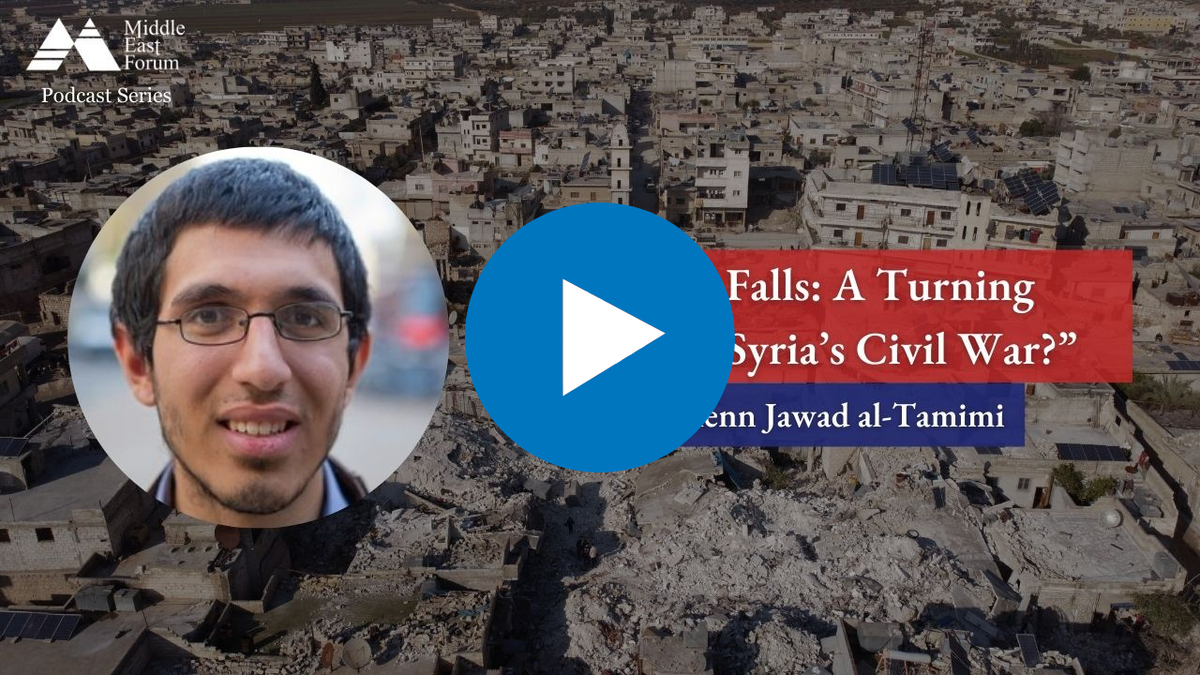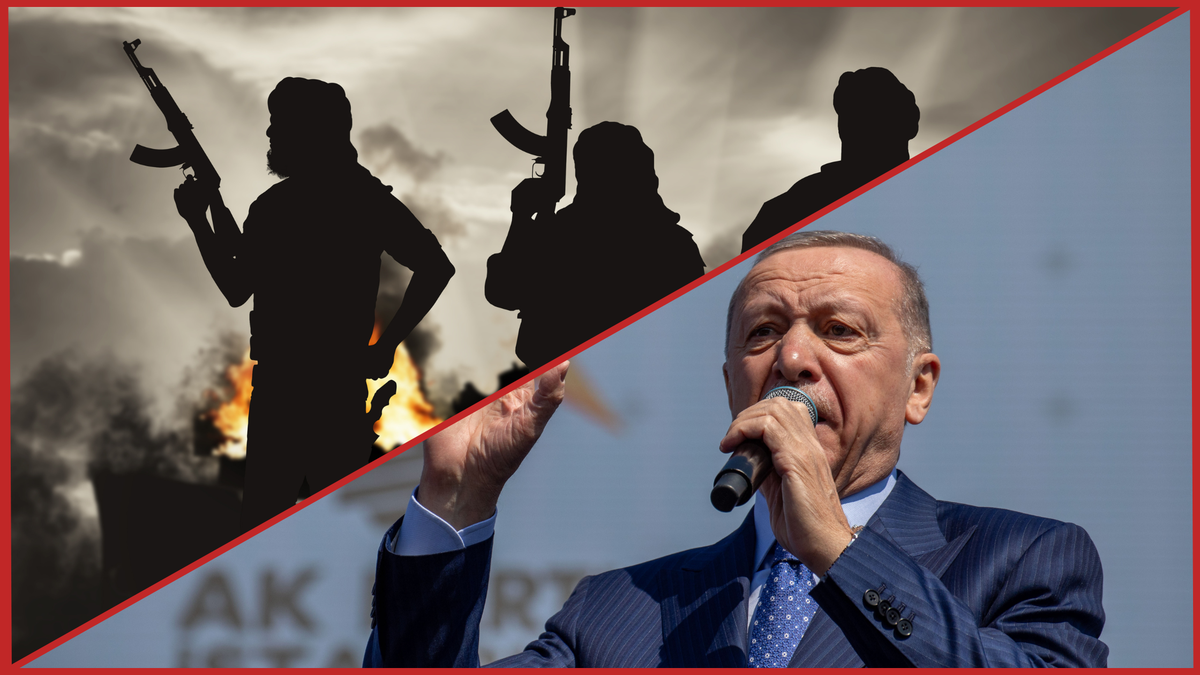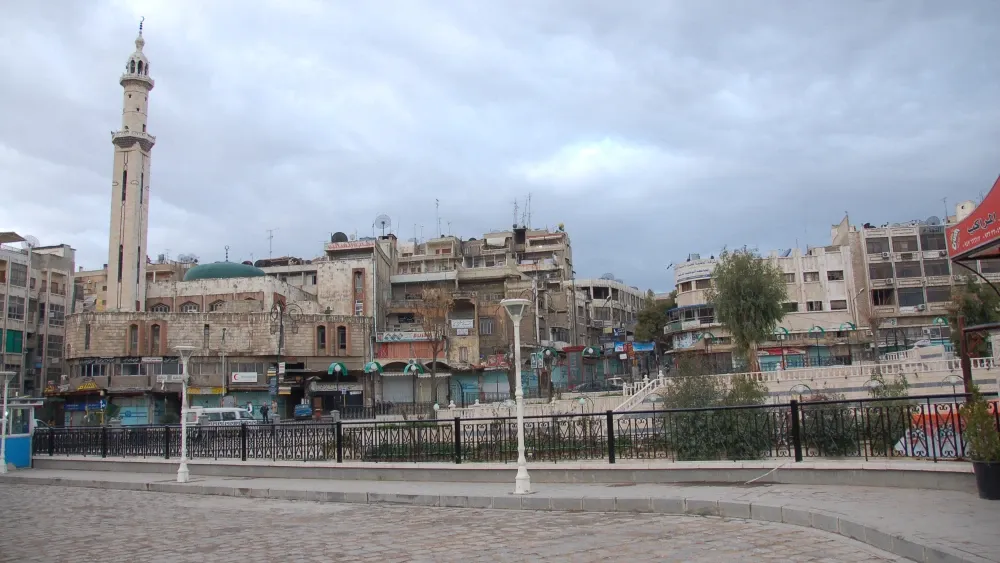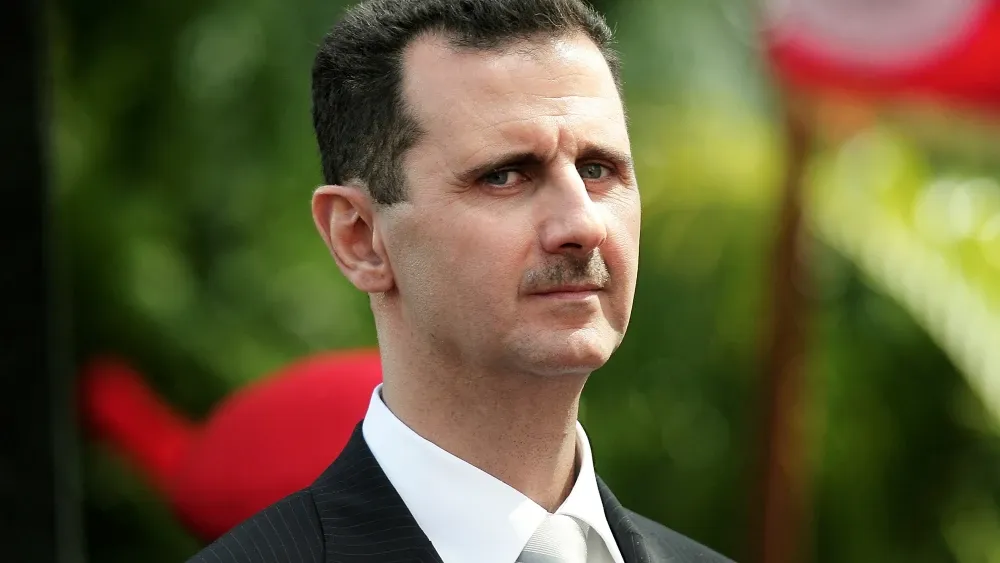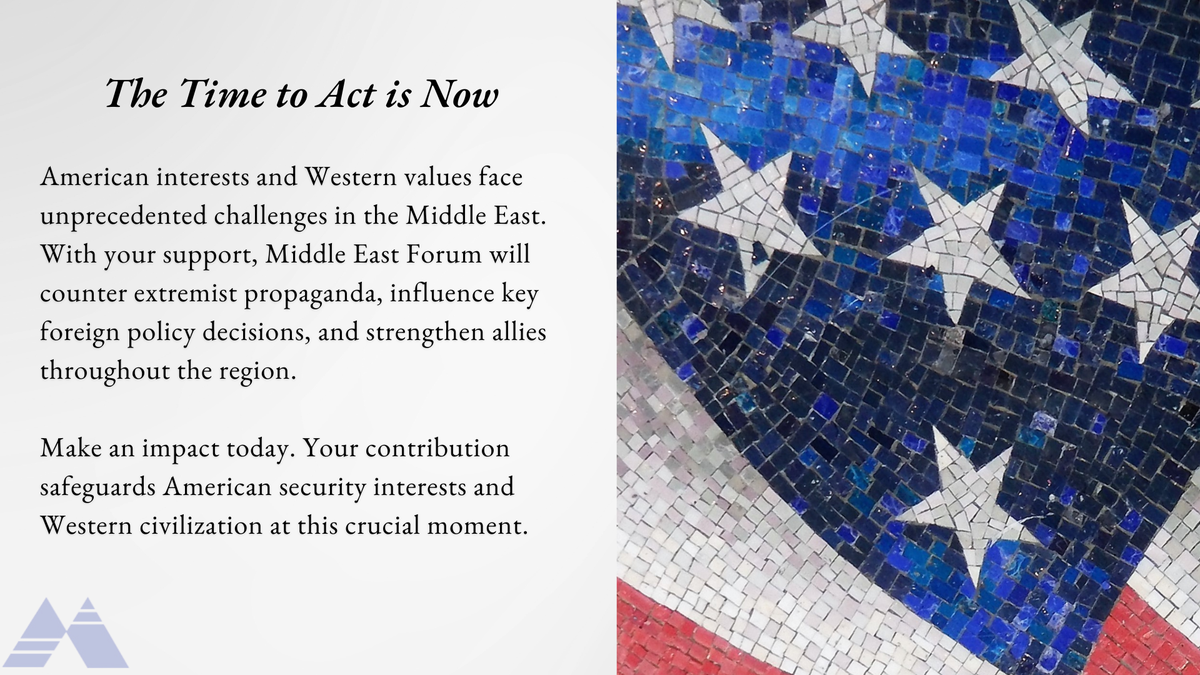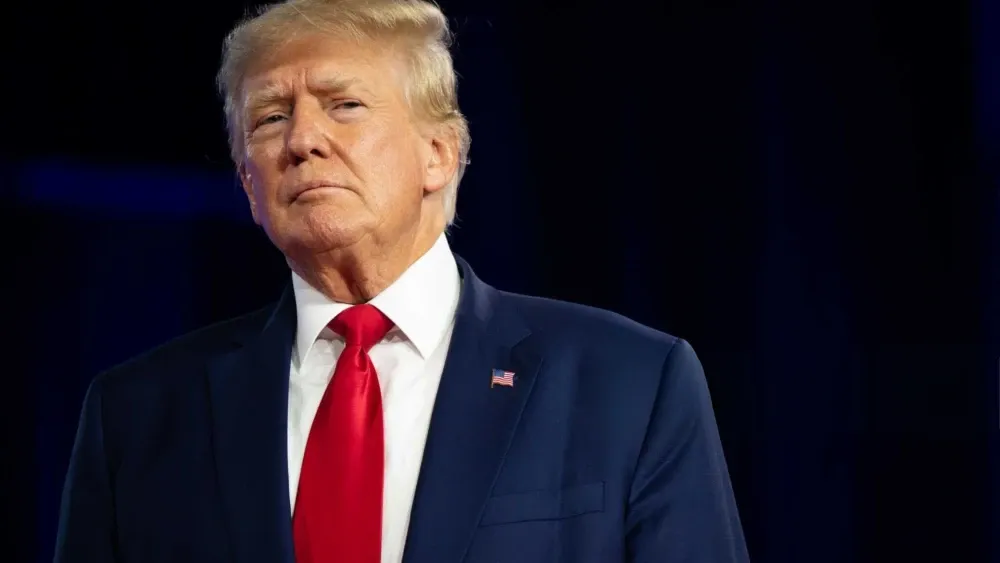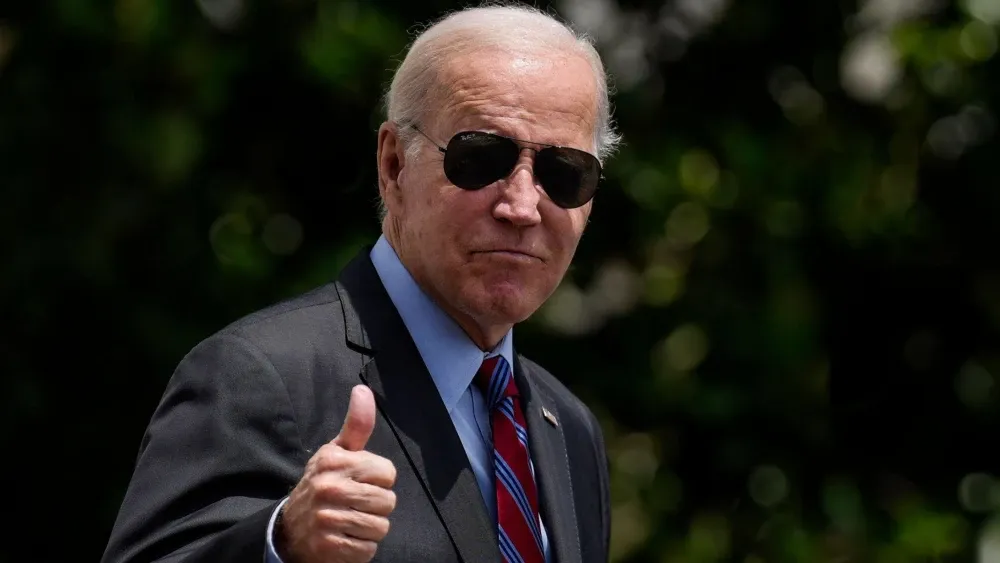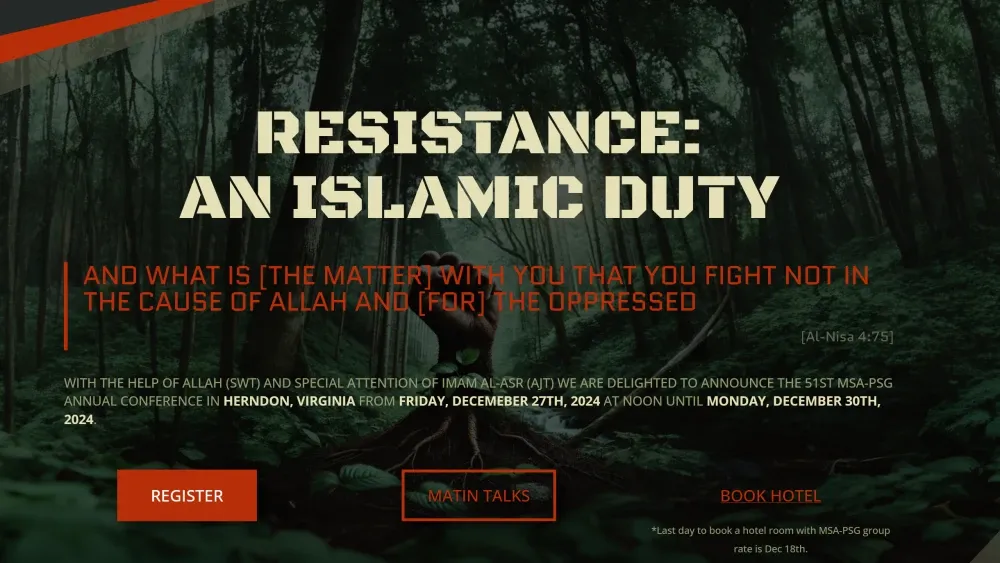| ||
 | ||
| Hamas on the Run, Iran in the Crosshairs, and the Consequences of an Open Border By Winfield Myers ● Dec 06, 2024 Smart Brevity® count: 7 mins...1806 words In this issue of the MEF Dispatch, we note an MEF Action campaign success in Washington, D.C. A bipartisan letter signed by members of the U.S. House who were briefed by MEF raises concerns over Turkey’s ties to Hamas on the heels of reports that it relocated to our erstwhile NATO ally after Qatar suspended its ties to the terrorist group. In Syria, meanwhile, our writers argue that the outbreak of hostilities there should surprise no one, as clashes between ethno-sectarian forces supported by powerful states are the norm there, making events in Syria a microcosm of regional dynamics. After all, the Syrian quagmire, which dates to 2011, has always reflected this tragic regional reality. In other news, we examine Hamas’s isolation—things having not gone the way they expected—especially with the incoming Trump administration warning that there will be “ALL HELL TO PAY” unless the hostages are released. In Iran, we argue that the regime has always viewed its conflict with Israel not as a strategic contest among nations, as imagined by Western diplomats, but as a religious-ideological war against Jews. Moving to the New World and its sometimes-baleful connections to the Middle East, we highlight Canada’s role as a money-laundering hub for Hezbollah-supporting narco-terrorists and call on the government to end that flow of dirty money immediately. We ask if Biden’s team will be as principled as Trump’s when it comes to betraying our Kurdish allies and resign in protest over their respective president’s actions. We warn that a blatantly pro-Iranian organization will meet soon in Northern Virginia, complete with speakers who laud terrorists. Finally, we warn that the illegal border-crossing immigrant who shot an Orthodox Jewish man in the back only to later hang himself in his Chicago jail cell marks the first terror attack on U.S. soil caused by open borders. Absent reform, he won’t be the last. | ||
ICYMI: “Aleppo Falls: A Turning Point in Syria’s Civil War?” with Aymenn Jawad al-TamimiThe unexpected capture of Aleppo by Turkish-backed rebel forces has reignited the Syrian civil war after years of stasis. This striking event, due in large part to diminished support from Russia, Iran, and Hezbollah, raises many questions: How did the rebels achieve this victory? Can they hold and even expand their holdings? What can the Bashar al-Assad regime do in response? What should the U.S. response be? How important is this development for Syria, the region, and beyond? Aymenn Jawad Al-Tamimi is a Milstein Writing Fellow at the Middle East Forum. His research focuses primarily on Syria, Iraq, and the Islamic State. A range of media outlets, including the New York Times, Wall Street Journal, and Agence France-Presse have quoted his insights. He has published an Arabic translation and study of the Latin work Historia Arabum, the earliest surviving Western book focused on Arab and Islamic history. He holds a B.A. from Brasenose College, Oxford University and a Ph.D. from Swansea University. To watch the full podcast episode, click here. | ||
MEF Campaign Success: Congress Tells Turkey to Deny Safe Haven to Hamas LeadersA bipartisan coalition of 39 Congress members has urged the U.S. government to pressure Turkey into denying sanctuary to Hamas, following briefings by MEF experts. Why it matters: This move highlights growing concerns over Turkey's relationship with Hamas and its implications for NATO alliances, potentially reshaping diplomatic dynamics. Congressional push: Led by Representatives Josh Gottheimer, Gus Bilirakis, Dan Goldman, and Nicole Malliotakis, the letter demands extradition of Hamas leaders from Turkey and seeks intelligence on Turkey's ties with the group. MEF's role: The Middle East Forum (MEF) has been instrumental in advocating against Turkey's harboring of Hamas by briefing members of Congress and emphasizing the need for international action to curb terrorist activities. To read the full press release, click here. | ||
The Fighting in Syria Is a Microcosm of the Middle East’s DynamicsThe recent offensive by the Sunni Islamist Hayat Tahrir al Sham (HTS) group in Syria underscores the volatile dynamics of the Middle East, reflecting a broader pattern of ethno-sectarian clashes backed by powerful states. Why it matters: Syria's ongoing conflict serves as a microcosm of the region's intricacies, highlighting how power is wielded through alliances and rivalries. Current developments: HTS has captured Syria's second city, Aleppo, and Hama, reflecting the Assad regime's vulnerabilities despite its Russian and Iranian support. Strategic insights: The offensive illustrates how "frozen conflicts" can reignite, driven by shifting geopolitical priorities and the pursuit of strategic opportunities by regional actors. To read the full article, click here. | ||
The Syrian QuagmireThe recent escalation by jihadist groups in Syria complicates the diplomatic efforts by the UAE, Saudi Arabia, and the U.S. to lure President Bashar al-Assad away from Iran's influence. Why it matters: This development threatens regional stability and undermines potential diplomatic strategies aimed at reshaping alliances. Strategic setbacks: The offensive by Turkish-backed jihadists disrupts plans to offer Assad sanctions relief in exchange for distancing from Iran, highlighting the fragility of his position without Iranian support. Broader implications: This situation reflects the intricate power dynamics of the Middle East, where regional and global powers must navigate military, economic, and diplomatic challenges to achieve stability. To read the full article, click here. | ||
Support MEF - Help Defend Western ValuesThe time to act is now. Critical opportunities lie before us to shape policy, expose Islamist propaganda and strengthen our Middle East allies on the front lines of conflict. Your tax-deductible gift powers our mission to uncover extremist networks, transform public debate, and advance strategic policies through key partnerships. As global threats intensify, your support ensures we continue delivering measurable results. Will you help us protect the democratic principles that define our civilization? Click here to make a tax-deductible gift to the Middle East Forum. | ||
Isolated Hamas Faces Collapsing Negotiating Stance After Drastic Trump ThreatHamas's hope for leveraging its position amidst regional tensions faces a critical blow as former U.S. President Donald Trump issues a stern warning about hostages held by the group. Why it matters: Trump's ultimatum to release hostages by his inauguration date challenges Hamas's negotiating strategy, increasing pressure on its alliances and diplomatic stance. Strategic impacts: With Iran and Hezbollah preoccupied, Hamas's reliance on these allies is strained. Trump's threat underscores a potential shift in U.S. policy, complicating Hamas's stance. Possible outcomes: Hamas must decide whether to negotiate a deal or risk facing intensified U.S. and Israeli actions, as Trump's unpredictable approach looms over their strategic calculations. To read the full article, click here. | ||
West Remains Blind to Iranian Regime’s War on JewsThe Iranian regime's recent actions underscore its deep-seated ideological conflict with Jews, as evidenced by targeted attacks and inflammatory rhetoric. Why it matters: Iran's leaders frame their conflict with Israel as a historical struggle against Jews, revealing the regime's extremist motivations beyond geopolitical disputes. Propaganda and actions: Despite Western narratives portraying Iran's stance as merely anti-Zionist, the regime's military and clerical leaders openly advocate for the extermination of Jews, aligning with historical references like "Operation True Promise,” a Shi'a reference to the total destruction of the Jews. Global implications: This ideology extends beyond the Middle East, affecting international perceptions and fueling antisemitic sentiments in various regions, highlighting the need for a clear understanding of Iran's true objectives. To read the full article, click here. | ||
Dirty Money from Canada Should No Longer Support Hezbollah’s Narco-TerrorismA recent ceasefire between Hezbollah and Israel offers Hezbollah a chance to recuperate financially, potentially leveraging Canada's money laundering networks to fund future insurgency efforts. Why it matters: As Hezbollah turns to drug trafficking to rebuild its finances, Canada's involvement as a key laundering hub threatens to support global terrorism and destabilize regional and domestic security. Financial networks: Hezbollah has long utilized Canadian networks for laundering drug money, capitalizing on sympathetic groups within the country to fund its operations and radicalization efforts. Strategic actions: Canada must act decisively to curb these illegal activities, treating collaborators as terrorists, seizing assets, and reinforcing the integrity of its financial systems to prevent funding of Hezbollah's future attacks on Israel. To read the full article, click here. | ||
Resignations Followed Trump’s Betrayal of the Kurds; Is Biden’s Team as Principled?The Biden administration's support for Turkey amidst its aggression against Syrian Kurds mirrors past U.S. foreign policy missteps, raising concerns over America's reliability as an ally. Why it matters: As Turkey threatens Kurdish self-rule, the U.S.'s willingness to overlook these actions puts its global partnerships and moral standing at risk. Historical echoes: The Syrian Kurds, vital allies in the fight against ISIS, find themselves abandoned once more, reminiscent of Trump-era policies that led to high-profile resignations in protest. Broader implications: America's apparent disregard for Kurdish autonomy could hinder future coalition-building efforts and damage its reputation as a steadfast partner in the region. To read the full article, click here. | ||
Tehran’s Trojan HorseThe U.S.-based Muslim Students Association Persian-Speaking Group (MSA-PSG) continues to operate as a mouthpiece for the Iranian regime, promoting allegiance to Tehran through its annual conference. Why it matters: MSA-PSG's activities highlight a persistent gap in U.S. security measures against foreign-backed Islamist entities, allowing the group to function with tax-exempt status despite its extremist rhetoric. Historical ties: Founded by key figures of Iran's Islamic Revolution, MSA-PSG has consistently aligned with Iran's interests, fostering connections with groups like Hezbollah. Call to action: It's imperative for the U.S. to scrutinize and address MSA-PSG's influence before its "resistance" rhetoric escalates into violence on American soil. To read the full article, click here. | ||
Without a Reckoning, the First U.S. Terror Attack Caused by Open Borders Won’t Be the LastThe recent terror attack in Chicago by Sidi Mohamed Abdallahi, a Mauritanian illegal immigrant, underscores the urgent need for a comprehensive investigation into the security implications of current U.S. border policies. Why it matters: Abdallahi's attack, allegedly motivated by jihadist ideology, challenges the perception of Islamic terrorist threats as hypothetical, highlighting vulnerabilities in border security. Investigation demands: The incident calls for a bipartisan public inquiry to examine border security policies and to end illegal crossings into the U.S. National implications: The case stresses the importance of federal involvement in counterterrorism, urging cooperation between local and federal authorities to address gaps in intelligence and border security protocols. To read the full article, click here. | ||
| This edition of the Dispatch demonstrates once again that troubles and violence in the Middle East pose immediate dangers to the U.S. and its allies. It also illustrates MEF’s commitment to understand, analyze, and take actions to mitigate these dangers. Our succinct mission statement—to promote American interests in the Middle East and protect the West from Middle Eastern threats—requires nothing less than a daily commitment to our work. The next edition of the MEF Dispatch will strive to bring you insightful, well-written analyses to help keep you informed. Stay tuned. Sincerely, | ||
| Was this edition useful? Your responses are anonymous | ||
| Powered by | ||
| ||


